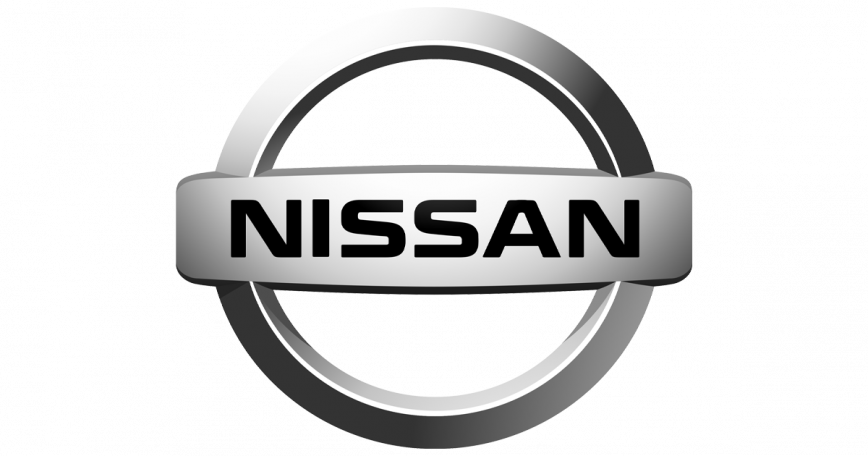New Buyout Plan Announced by Nissan for U.S. Employee Cuts

Nissan Motor Co., facing significant challenges in its second-largest market, has decided to trim its U.S. salaried workforce through a voluntary severance program. This move comes as the Japanese automaker grapples with declining fortunes in the post-pandemic era.

The buyout packages are targeted at salaried employees aged 52 and older in specific non-manufacturing units and those aged 55 and up within the manufacturing organization.

Struggling Market Share
Nissan’s U.S. business has taken a hit since the pandemic, with its market share plummeting from 7.9% in 2019 to 5.8% last year. This substantial decline underscores the challenges the company faces in regaining its footing in a highly competitive market. The drop in market share is a clear indicator of the hurdles Nissan must overcome to restore its presence in the U.S. automotive sector.
Excessive Inventory Levels
One of the significant issues contributing to Nissan’s struggles is its high inventory levels. According to Cox Automotive, Nissan had a 104-day supply of inventory at the end of February, far above the national average of 76 days. This overabundance of vehicles indicates sluggish sales and a potential disconnect between production and consumer demand. Addressing this imbalance is crucial for Nissan to stabilize its operations and improve its market performance.
Voluntary Severance Program Details
In response to these challenges, Nissan has introduced a voluntary severance program aimed at reducing its U.S. salaried workforce. The program offers buyout packages to employees who meet specific age criteria, providing an opportunity for voluntary departure. This strategic move is designed to streamline operations, cut costs, and align the workforce with current market realities.
Eligible employees in certain non-manufacturing business units who are at least 52 years old and those in the manufacturing organization aged 55 and older can opt for these buyouts. The decision to target this demographic likely stems from a combination of factors, including the higher costs associated with senior employees and the potential for younger, more adaptable talent to drive innovation and efficiency.
Impact on the Workforce
The voluntary severance program’s impact on Nissan’s U.S. workforce will be significant. For many employees, the offer presents a chance to transition out of the company with financial support, potentially pursuing new opportunities or retirement. However, it also means a reduction in experienced personnel, which could affect the company’s operations and institutional knowledge.
The move reflects a broader trend in the automotive industry, where companies are increasingly looking to cut costs and optimize their workforces to remain competitive. By offering voluntary buyouts, Nissan aims to reduce its workforce without resorting to involuntary layoffs, which can have a more substantial negative impact on employee morale and public perception.
Post-Pandemic Challenges
Nissan’s struggles in the U.S. market are emblematic of the broader challenges faced by many automakers in the post-pandemic era. The COVID-19 pandemic disrupted global supply chains, altered consumer behavior, and created economic uncertainty. For Nissan, these factors have compounded existing issues, making it more difficult to navigate the current landscape.
The pandemic has also accelerated shifts in consumer preferences, with a growing emphasis on electric vehicles (EVs) and sustainable mobility solutions.

While Nissan has made strides in the EV market with its Leaf model, it faces stiff competition from other automakers who are rapidly expanding their electric vehicle offerings. Adapting to these changing dynamics is essential for Nissan to remain relevant and competitive in the future.
Strategic Adjustments
To address its declining fortunes, Nissan must undertake strategic adjustments that go beyond workforce reductions. The company needs to reassess its product lineup, enhance its marketing strategies, and invest in innovation to meet evolving consumer demands. Strengthening its position in the electric vehicle market, for instance, could provide a pathway to renewed growth and success.
Additionally, Nissan must focus on improving its operational efficiency and reducing excess inventory levels. Streamlining production processes, optimizing supply chain management, and aligning production with market demand are critical steps in this direction. By addressing these operational challenges, Nissan can enhance its financial performance and regain its competitive edge.
The Road Ahead
Nissan’s decision to offer buyouts to its U.S. salaried workforce marks a pivotal moment in the company’s efforts to navigate a challenging market environment. While this move aims to reduce costs and align the workforce with current market realities, it also signals the need for broader strategic adjustments to secure long-term success.
For Nissan, the road ahead will require a combination of innovation, adaptability, and a renewed focus on meeting customer needs. By leveraging its strengths, addressing its weaknesses, and embracing emerging opportunities, Nissan can chart a path toward recovery and growth in the U.S. automotive market.
Community and Industry Reactions
The announcement of Nissan’s voluntary severance program has elicited mixed reactions from the community and industry observers. Some view the buyouts as a pragmatic step to address financial challenges and streamline operations, while others express concerns about the potential loss of experienced talent and the impact on employee morale.
Industry analysts highlight the importance of balancing workforce reductions with strategic investments in innovation and market expansion. As the automotive industry undergoes rapid transformation, companies like Nissan must navigate a delicate balance between cost-cutting measures and forward-looking initiatives to remain competitive.
Employee Perspectives
For the employees affected by the buyout offers, the decision to accept the severance package or remain with the company is a significant one. Many eligible employees may see the buyout as an opportunity to retire or pursue new career paths, while others may be concerned about the stability and future prospects of staying with Nissan.
The company’s ability to support transitioning employees and communicate its long-term vision will play a crucial role in maintaining workforce morale and retaining key talent. Transparent communication and a clear roadmap for the future are essential to fostering a sense of stability and confidence among remaining employees.
Competitive Landscape
Nissan’s challenges in the U.S. market are compounded by the competitive landscape of the automotive industry. Rival automakers are also navigating post-pandemic disruptions and shifting consumer preferences, making it imperative for Nissan to differentiate itself and offer compelling value propositions to customers.
Investing in research and development, enhancing product quality, and delivering innovative solutions will be critical for Nissan to regain market share and strengthen its brand presence. By focusing on customer satisfaction and leveraging technological advancements, Nissan can position itself for success in an increasingly competitive market.
Future Prospects
Despite the current challenges, Nissan has the potential to rebound and thrive in the U.S. market. The company’s commitment to innovation, sustainability, and customer-centric solutions can serve as a foundation for future growth. By embracing change and leveraging its strengths, Nissan can navigate the evolving automotive landscape and emerge as a stronger, more resilient player in the industry.
Conclusion
Nissan’s decision to implement a voluntary severance program for its U.S. salaried workforce is a strategic response to the significant challenges it faces in the post-pandemic era. While this move aims to reduce costs and align the workforce with current market realities, it also underscores the need for broader strategic adjustments to secure long-term success.
As Nissan navigates this transitional period, the company’s focus on innovation, operational efficiency, and customer satisfaction will be paramount. By addressing its current challenges and capitalizing on emerging opportunities, Nissan can chart a path toward recovery and growth in the U.S. automotive market. The road ahead may be challenging, but with the right strategies and a commitment to excellence, Nissan has the potential to drive forward and achieve lasting success.

